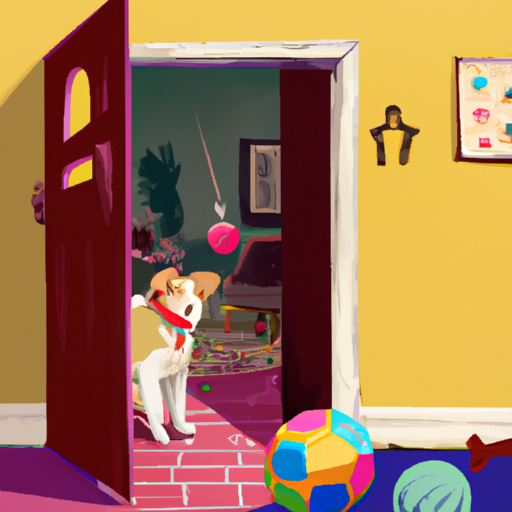Understanding Your Dog’s Separation Anxiety
Separation anxiety in dogs is a condition that can cause them great distress. When you leave the house, your dog may experience intense anxiety and fear. This can result in destructive behavior, excessive barking, and other symptoms that can disrupt both your life and theirs.
It’s important to understand that this is not a sign of disobedience or lack of training. Your dog is genuinely distressed and needs your help to overcome this anxiety.
Let’s explore how you can help alleviate your dog’s separation anxiety:
| Symptoms | Examples |
|---|---|
| Destructive behavior | Chewing on furniture, doors, or personal items |
| Excessive barking or howling | Especially immediately after you leave |
| Pacing | In an obsessive pattern |
| Attempting to escape | The confined area where they are left |
Building Up Your Dog’s Confidence
The first step in breaking your dog’s separation anxiety is to build up their confidence and independence.
- Start with short separations: Begin by leaving your dog alone for just a few minutes at a time. Gradually increase the duration of your absences.
- Create a safe space: Set up a specific area in your home where your dog feels safe and comfortable. This could be a crate, a specific room, or a spot with their favorite blanket.
- Avoid fuss: When you leave and return home, keep your greetings and farewells calm and low-key to avoid creating anxiety around these moments.
Using Distractions to Your Benefit
Distractions can be a powerful tool in your arsenal against your dog’s separation anxiety.
- Toys: Invest in puzzle toys or treat-filled toys that will keep your dog engaged while you’re gone.
- Background noise: Leaving the TV or radio on can help soothe your dog’s nerves.
- Exercise: A tired dog is a happy dog. Make sure your pup gets plenty of exercise before you leave.
Seeking Professional Help
Sometimes, despite your best efforts, your dog’s separation anxiety may persist. In these cases, it’s important to seek professional help. A veterinarian or a dog behaviorist can provide you with additional strategies and may even recommend medication to help manage your dog’s anxiety.
Implementing a Consistent Routine
A consistent routine can provide a sense of security for your dog. Try to stick to a regular schedule for feeding, walks, and playtime. This predictability can help reduce your dog’s anxiety.
FAQ
Q: Can separation anxiety in dogs lead to more serious health problems?
A: Yes, in some cases severe anxiety can lead to health issues like depression or loss of appetite.
Q: How long does it typically take to help a dog overcome separation anxiety?
A: The timeline can vary greatly depending on the dog and the severity of their anxiety. It may take weeks or even months of consistent training and patience.
Q: Can I use calming supplements or medication for my dog’s separation anxiety?
A: Yes, in some cases medication or natural supplements can be helpful. However, it’s important to consult with a veterinarian before starting any new treatment.
Remember, overcoming separation anxiety is not an overnight process. It requires patience, understanding, and a lot of love. But with these strategies, you can help your dog feel more secure and happy, even when you’re not around.



